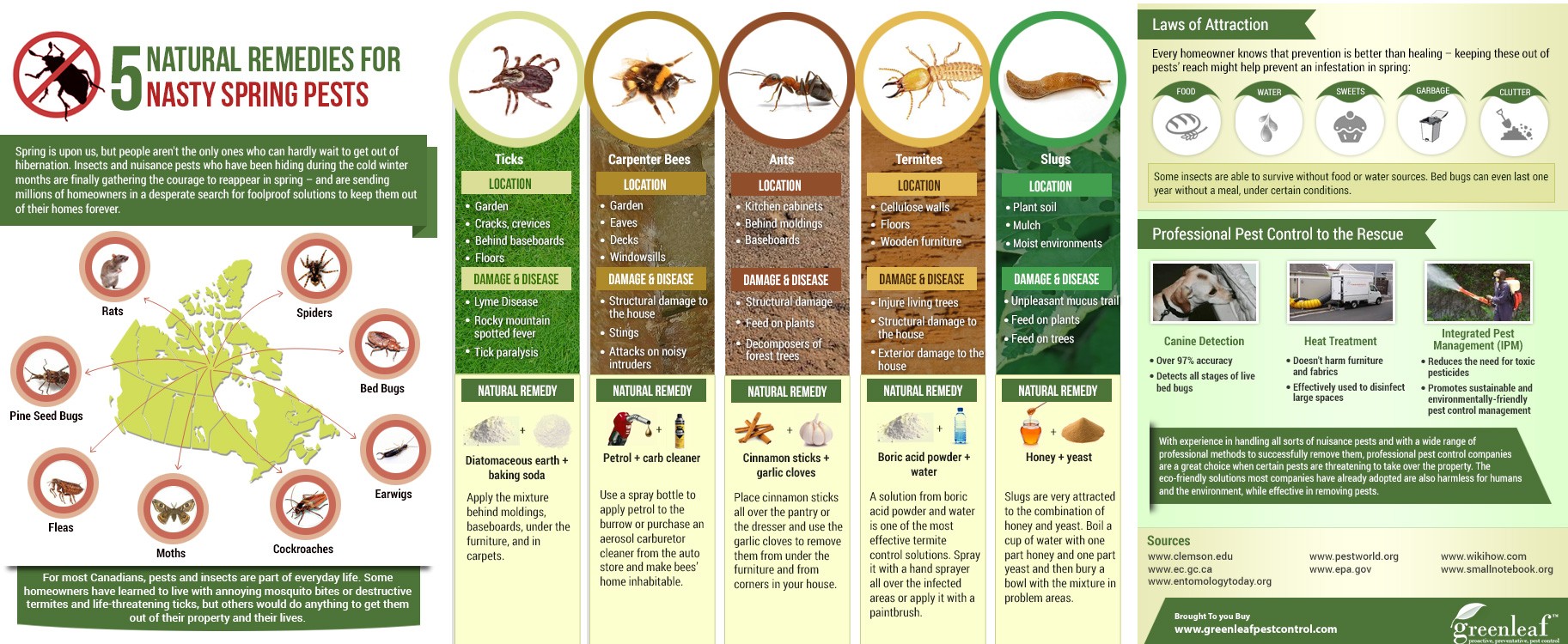Protect Your Yard From Vermins: Suggestions For Keeping Undesirable Intruders Away
Protect Your Yard From Vermins: Suggestions For Keeping Undesirable Intruders Away
Blog Article
Author-Dunlap Qvist
Imagine your garden as a refuge, an area of harmony and appeal. However, the visibility of outdoor pests can swiftly interrupt this idyllic image. What happens if there were best ant killer for yard yet reliable ways to keep these unwelcome site visitors at bay and safeguard your garden oasis? By complying with a couple of practical ideas and applying natural methods, you can create a harmonious outside room where your plants can grow undisturbed.
Natural Insect Deterrents
To keep pests far from your garden normally, plant fragrant natural herbs like mint and lavender. These fragrant plants not just include elegance to your garden yet likewise serve as effective bug deterrents. Insects like mosquitoes, flies, and even some garden-damaging pests are driven away by the strong fragrances emitted by these herbs. Merely putting them purposefully around your garden can assist develop an all-natural obstacle against undesirable parasites.
Along with mint and lavender, think about planting other natural herbs like rosemary, basil, and lemongrass to even more enhance your garden's pest-proofing abilities. These herbs not just work as all-natural repellents yet additionally have the included advantage of serving in food preparation or crafting self-made solutions.
Strategic Plant Positioning
Consider the format of your garden and the sorts of plants you need to purposefully place them for maximum pest-proofing effectiveness.
Beginning by grouping plants with comparable resistance to pests with each other. By doing this, you can develop a natural obstacle that prevents bugs from spreading throughout your yard.
Furthermore, putting pest-repelling plants like marigolds, lavender, or mint near more susceptible plants can aid secure them. Tall plants, such as sunflowers or corn, can act as a shield for much shorter plants against parasites like rabbits or ground-dwelling insects.
Bear in mind to leave enough room between plants to boost air circulation and decrease the threat of conditions that pests might bring.
Furthermore, take into consideration growing strong-smelling herbs like rosemary or basil near susceptible plants to confuse insects' senses and make it harder for them to situate their targets.
Efficient Insect Control Methods
For combating garden parasites effectively, implementing a multi-faceted insect control method is important. Begin by motivating all-natural killers like birds, ladybugs, and hoping mantises to assist keep insect populaces in check. Presenting linked here that bring in these valuable bugs can assist in pest control. Additionally, exercising great yard hygiene by getting rid of particles and weeds where pests might conceal can make your yard less welcoming to undesirable visitors.
Think about using physical barriers such as row cover materials or netting to shield susceptible plants from bugs like caterpillars and birds. Applying natural chemicals like neem oil or insecticidal soap can additionally work versus particular pests while being less harmful to useful bugs and the atmosphere. It's important to turn your crops each season to prevent the build-up of bug populations that target certain plants.
Routinely examine your plants for indications of pest damage so you can take action quickly. By combining these methods and staying cautious, you can effectively manage garden insects and take pleasure in a thriving, pest-free garden.
http://entomologytoday.org/2018/01/29/brown-recluse-pest-management-tips-for-the-spider-thats-not-as-common-as-you-think/ , there you have it - with the right approaches, you can keep pesky outdoor bugs far from your garden and aid your plants prosper.
Did you know that planting mint has been revealed to push back mosquitoes and other insects, lowering the need for dangerous pesticides by approximately 60%?
By integrating all-natural deterrents and smart planting strategies, you can create a beautiful and pest-resistant yard sanctuary for you to appreciate.
